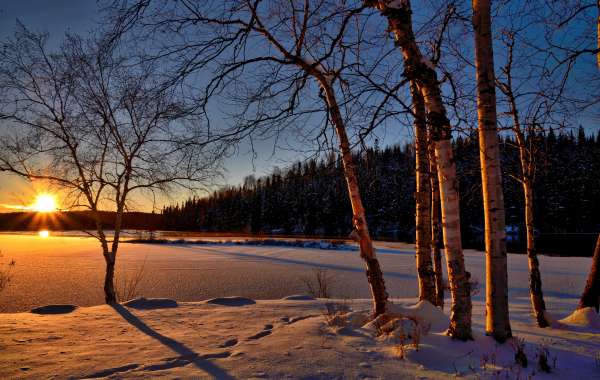Winter season brings a lot of challenges to the environment. When the ice and snow accumulate during winter, it gets contaminated with pollutants such as dirt, litter, and salt. During thawing in the spring, the contaminants get washed and may contaminate and clog storm drains, rivers, and lakes.
The air quality may get impacted negatively by the emissions from car engines, fires, and machines such as snow blowers.
Below are the things that you can do to help the environment this winter.
Remove The Snow
Try your best in removing the snow that has accumulated before it compacts and becomes ice. For snow to soak or melt into the ground, shovel it to an area that is gently sloping or levelled. Additionally, dig it into planters or onto your lawn. You can also help your neighbour in the shovelling of snow.
Choice of Deicer
Ensure that you choose to use the right deicer. More often, calcium chloride and rock salt are dangerous to the environment, pets, and children. Employ environmentally friendly methods when melting the ice.
When applying the deicers, use that which is enough. Ensure that you read the directions on the packaging of the deicer on the right amount to employ and how to use it in melting ice. Ensure that the machine that you will use in melting ice gets appropriately calibrated.
Furthermore, ensure that you shovel or clean any spoilt product. The removal will avoid environmental pollution during ice thawing in spring. To melt ice naturally, apply traction.
Traction is chemical-free. Apply small quantities of sawdust or sand to help keep the vehicles and people safe while in the ice. The process will keep the environment free from chemicals. When using traction, apply the sawdust and sand sparingly. After the melting of ice, shovel or sweep the leftovers to avoid blockages.
Use Non-Fossil Fuels
During winter, learn to use hybrid-powered, electric, and battery snow blowers. Employing these will prevent the leaking and spilling of gasoline; you will consume little fossil fuels, and the air will be kept clean.
When you want to clear ice from shorter stretches like paths or the parking lot, shovel or clear the ground with a broom. Clearing will prevent blockages during the thawing process. Carrying out this will make the environment cleaner when the winter is over. Furthermore, you will save on the costs of fossil fuels if you use electricity and battery.
Before winter, install solar panels and preserve their energy on a battery to use during the winter season. Solar power will reduce the fossil fuels that you will use during this period. You can hire a New York solar consultant to come and help you with the installation process.
Reduce Emissions
You ought to find a way of minimizing your emissions during winter. Do not ride your car idly and aimlessly for a period that exceeds three minutes. When making fires, reduce the number of wood that you use. You can set up an electric or gas fireplace in place of firewood.
You can use thermostats. Purchase thermostats that are programmable to temperatures of between 55 and 68 degrees for both night and day in comparison with the usual 70 degrees.
Designs That Are Ice-Free
Use designs that are ice-free in your housing. Employ paving that is permeable and porous in your home. Also, use porous asphalt. These will help you in absorbing the water from rain and snow melts before they can accumulate and convert into ice.
Fixing Your Filters
The majority of the manufacturers prefer that you change your heating filters and furnace every sixty days more so in winter seasons. Ensure that you periodically examine them and replace them when it is inevitable. The periodic monitoring will ensure that your unit becomes efficient and services you with sufficient heat while consuming less heat.
During winter, employ techniques that will conserve the environment.








